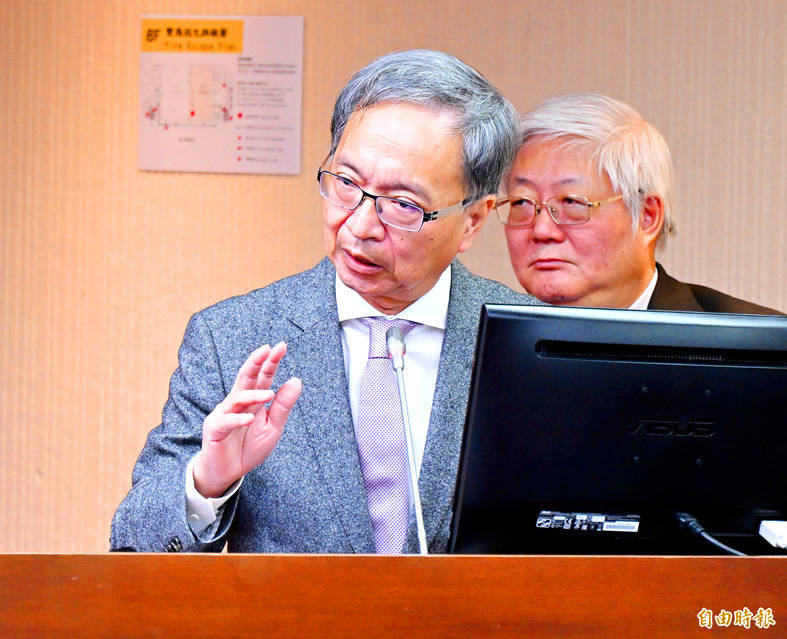《TAIPEI TIMES》 No set position on draft surrogacy rules: ministry

Minister of Health and Welfare Hsueh Jui-yuan speaks at the legislature’s Social Welfare and Environmental Hygiene Committee meeting in Taipei yesterday. Photo: Chu Pei-hsiung, Taipei Times
SAFEGUARDS: Protecting surrogate mothers’ health and rights, while preventing them from being taken advantage of, are top concerns, the health minister said
By Lee I-chia / Staff reporter
Minister of Health and Welfare Hsueh Jui-yuan (薛瑞元) yesterday said the ministry does not have a predetermined stance on draft amendments to the Assisted Reproduction Act (人工生殖法) to legalize surrogacy and expand eligibility to same-sex couples and single women, adding that it was working on a Cabinet proposal.
The Legislative Yuan’s Social Welfare and Environmental Hygiene Committee yesterday reviewed eight versions of draft amendments to the act, proposed by the Taiwan People’s Party (TPP) legislative caucus, and several Chinese Nationalist Party (KMT) and Democratic Progressive Party (DPP) legislators.
Hsueh said the ministry is open to discussions about amending the act, and has been gathering data and opinions to draft a Cabinet version of the amendments, which address assisted reproduction for single women, same-sex couples and infertile heterosexual couples.
“We will provide our version of an amendment to these issues for further discussion, but it does not mean the ministry has a predetermined stance on which regulations should be eased and which ones should not,” he said.
The Cabinet’s amendment bill would be drafted carefully, as the issues are complicated, and touch on ethics and the legal protections of a surrogate mother, as well as a child’s interests and rights, he said.
The TPP legislative caucus’ draft proposes that single women and same-sex couples obtain court approval before healthcare facilities can perform assisted reproduction procedures for them, but that requirement would differ from current medical practices and lacks clear definitions of an applicants’ qualifications, application procedures and the court’s review standards, Hsueh said.
Some of the draft amendments from the TPP, KMT and DPP would legalize surrogacy based on reciprocity and monetary payment to the surrogate mother, but that could open the door to the commercialization of surrogacy, he said.
Some women’s rights groups have raised concerns that disadvantaged women might be exploited as surrogate mothers, or that legalizing the practice might reinforce the pressures on women to have children, he said.
The main concerns regarding surrogacy include: adequate protection of the surrogate mothers, as they face health risks from pregnancy; ethical considerations about using surrogates as a treatment tool for infertile couples; and the legal status of the child, Hsueh said.
While there are still controversies about legalizing surrogacy, there are fewer objections to expanding the eligibility of assisted reproduction to same-sex couples and single women, but supporting measures still need to be dealt with, he said.
DPP Legislator Hung Sun-han (洪申翰) said that a 2019 health ministry survey showed that 41.2 percent of women in common-law partnerships said they do not want to get married, while 30.1 percent of women who have been divorced said they do not want to remarry, meaning that more single women would become ineligible for assisted reproduction.
Hung said the act should be amended to allow single women and female same-sex couples to receive assisted reproduction, so that they do not have to risk going abroad and spending a lot of money for procedures.
The health ministry would take local customs, social expectations, other countries’ rules and procedures, and the child’s best interest into consideration as it gathers more data from experts in the fields of medicine, women’s rights, children’s rights, ethics and law, Hsueh said, adding that it might also hold public hearings on the amendments.
新聞來源:TAIPEI TIMES

















